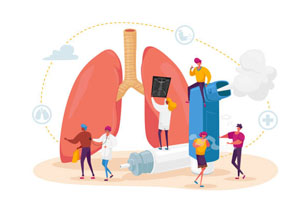Recognizing the early signs of mental health disorders is a crucial step in promoting well-being and seeking timely support These signs may not always be glaring, and they can vary from one person to another However, understanding the common indicators
Recognizing the early signs of mental health disorders is a crucial step in promoting well-being and seeking timely support. These signs may not always be glaring, and they can vary from one person to another. However, understanding the common indicators and being aware of subtle changes in thoughts, emotions, and behavior can make a significant difference. In this comprehensive guide, we will explore the early signs of various mental health disorders and provide valuable insights into the importance of early detection. Whether you're concerned about your own mental health or that of a loved one, this article will equip you with the knowledge to identify and address these challenges proactively.

Recognizing Mental Health Disorders Early
Why Early Recognition Matters
Understanding the significance of early recognition in mental health is crucial. It allows individuals to access appropriate care and support, potentially preventing the disorder from worsening. Early intervention can lead to better outcomes and an improved quality of life for those affected.
General Signs and Symptoms
Explore the general signs and symptoms that might indicate a developing mental health disorder. This section covers common emotional, behavioral, and physical indicators, providing a foundation for recognizing potential issues.
The Role of Self-Awareness
Self-awareness is key in recognizing mental health issues early. Learn how to tune into your own thoughts, feelings, and behaviors, and how they might signal a need for further evaluation. This section also offers strategies for enhancing self-awareness.
Recognizing Signs in Others
Identifying early signs in others is equally important. Whether it's a family member, friend, or colleague, this part of the article discusses how to notice changes in their behavior and mood and offer support when needed.
Stigma and Seeking Help
Addressing the stigma surrounding mental health is crucial for early recognition. Discover why stigma can be a barrier to seeking help and how to overcome it. Encouraging individuals to reach out for support is a significant step in early intervention.
Understanding the Importance of Early Detection
Why Early Detection Matters
Early detection of mental health disorders is crucial for several reasons. This section delves into the reasons behind its significance. It highlights how early identification can lead to more effective treatment, improved quality of life, and the potential prevention of long-term complications.
Reducing Stigma and Promoting Awareness
Reducing the stigma surrounding mental health is an essential part of early detection. Explore how raising awareness can help individuals recognize the importance of seeking help without judgment. It also discusses how societal attitudes can impact early detection efforts.
Impacts on Personal and Public Health
Early detection doesn't just affect the individual but also public health. Learn about the broader implications of early detection, such as reducing the societal and economic burdens associated with untreated mental health issues. It emphasizes the role of early recognition in creating healthier communities.
The Connection to Timely Treatment
Early detection is closely connected to timely treatment. This part of the article explains how recognizing mental health disorders in their early stages can lead to more straightforward and effective treatment options. It underlines the advantages of seeking professional help sooner rather than later.
Preventing Escalation and Crisis
One significant aspect of early detection is its potential to prevent mental health crises and the escalation of symptoms. It explores how identifying issues early can help individuals and their support networks take proactive steps to manage and address these issues before they become critical.
Common Early Signs and Symptoms
Emotional Signs
Early mental health issues can manifest through various emotional signs. This section provides in-depth information about emotional indicators, such as persistent sadness, increased anxiety, sudden mood swings, or a loss of interest in activities. It discusses the significance of these emotions as potential early signs.
Behavioral Changes
Recognizing behavioral changes is crucial for early detection. Learn how shifts in behavior, like social withdrawal, changes in sleep patterns, or increased irritability, may be early signs of mental health concerns. This section offers insights into understanding these changes and their implications.
Physical Symptoms
Mental health issues can also manifest physically. Explore how symptoms like headaches, digestive problems, or unexplained aches and pains can be early signs. This part discusses the mind-body connection and the importance of recognizing these physical manifestations.
Cognitive Indicators
Cognitive indicators, such as difficulty concentrating, memory problems, or racing thoughts, are common in the early stages of mental health disorders. This section offers a comprehensive overview of these cognitive signs and how they relate to early detection.
Social and Relationship Patterns
Changes in social interactions and relationships can be early red flags. Delve into how shifts in communication, isolation from loved ones, or strained relationships can signal the need for early intervention. This section highlights the significance of paying attention to these changes in social dynamics.
Specific Mental Health Disorders and Their Early Indicators
Depression
Depression is a common mental health disorder with various early indicators. This section provides insights into recognizing signs of depression, including persistent sadness, changes in appetite, sleep disturbances, and a lack of energy. It also highlights the importance of distinguishing these signs from everyday mood fluctuations.
Anxiety Disorders
Anxiety disorders come in different forms, and early indicators may vary. Explore specific anxiety disorders like generalized anxiety disorder, social anxiety, or panic disorder, and their respective early signs. This part emphasizes understanding how excessive worry, fear, or avoidance behaviors can signal the onset of anxiety issues.
Bipolar Disorder
Bipolar disorder often involves manic and depressive episodes. Learn about the early indicators of bipolar disorder, such as extreme mood swings, changes in sleep patterns, impulsivity, and racing thoughts. This section discusses the significance of recognizing these signs to facilitate early intervention.
Schizophrenia
Schizophrenia is a complex disorder with unique early indicators. Delve into the cognitive and behavioral signs of schizophrenia, including hallucinations, delusions, disorganized thinking, and social withdrawal. This part explores the importance of identifying these early signs and seeking professional help.
Eating Disorders
Early signs of eating disorders like anorexia, bulimia, or binge-eating disorder can be subtle. Explore the physical, behavioral, and emotional indicators of eating disorders. This section underscores the need for early recognition to prevent these conditions from progressing.
Seeking Professional Help and Support
Recognizing the Right Time to Seek Help
It's essential to know when to seek professional help. This section delves into recognizing the right time for intervention. It discusses how understanding early indicators and assessing their impact on daily life can guide individuals in deciding when to seek support.
Choosing the Right Mental Health Professional
Choosing the right mental health professional is crucial for early detection. Learn about the different types of professionals, including therapists, counselors, and psychiatrists, and their specific roles in providing support. This part also addresses the importance of finding a professional who specializes in the specific disorder or concern.
Therapeutic Approaches and Treatment Options
Exploring therapeutic approaches and treatment options is essential for early intervention. This section offers insights into various treatment modalities, such as psychotherapy, medication, and holistic approaches. It highlights the importance of personalized treatment plans tailored to individual needs.
Family and Social Support
Family and social support play a significant role in early detection and recovery. Delve into how loved ones can provide crucial assistance and encouragement. This part discusses the value of open communication and the role of support networks in the journey toward better mental health.
Overcoming Stigma and Barriers
Overcoming stigma and barriers to seeking help is a critical step. Explore the societal challenges individuals may face when addressing mental health concerns. This section emphasizes the importance of reducing stigma and creating a supportive environment for those in need of help.
FAQs on Identifying Early Signs of Mental Health Disorders
Q1: What are the common early signs of mental health disorders?
A1: Common early signs include changes in mood, sleep patterns, appetite, and increased anxiety or irritability.
Q2: Is it possible to self-diagnose early signs of mental health disorders?
A2: Self-awareness is valuable, but a professional evaluation is essential for an accurate diagnosis and appropriate treatment.
Q3: Are there early signs specific to depression and anxiety disorders?
A3: Early signs may include persistent sadness, loss of interest, excessive worry, and physical symptoms like racing heart or muscle tension.
Q4: How can I encourage someone to seek help if I notice early signs in them?
A4: Express your concern, offer support, and suggest they reach out to a mental health professional for a thorough evaluation and guidance.
Q5: Can stress be mistaken for early signs of a mental health disorder?
A5: Yes, stress can mimic some symptoms, but if these symptoms persist or intensify, it's essential to seek professional assessment.
Q6: Can early signs of mental health disorders change over time?
A6: Yes, early signs can evolve and vary. Some individuals may experience different symptoms or increased severity over time. Regular monitoring and professional guidance are crucial to adapt to these changes.
Q7: Are there early signs of schizophrenia that I should be aware of?
A7: Early signs of schizophrenia can include social withdrawal, changes in thinking patterns, and hallucinations. Recognizing these signs can lead to early intervention and improved outcomes.
Q8: How can I differentiate between normal mood swings and early signs of bipolar disorder?
A8: Differentiating between mood swings and early signs of bipolar disorder can be challenging. Bipolar disorder typically involves more extreme and longer-lasting mood shifts. If these mood swings disrupt daily life, professional evaluation is recommended.
Q9: Can children exhibit early signs of mental health disorders, and how do I recognize them?
A9: Yes, children can display early signs of mental health disorders. These signs may include changes in behavior, emotional outbursts, and trouble in school. It's important to observe any unusual or persistent behaviors and consult with a pediatrician or mental health professional.
Q10: Is it possible to prevent mental health disorders by identifying early signs?
A10: While early identification is essential for timely intervention, not all mental health disorders can be prevented. However, early intervention can significantly improve outcomes and quality of life for individuals affected by these disorders.








